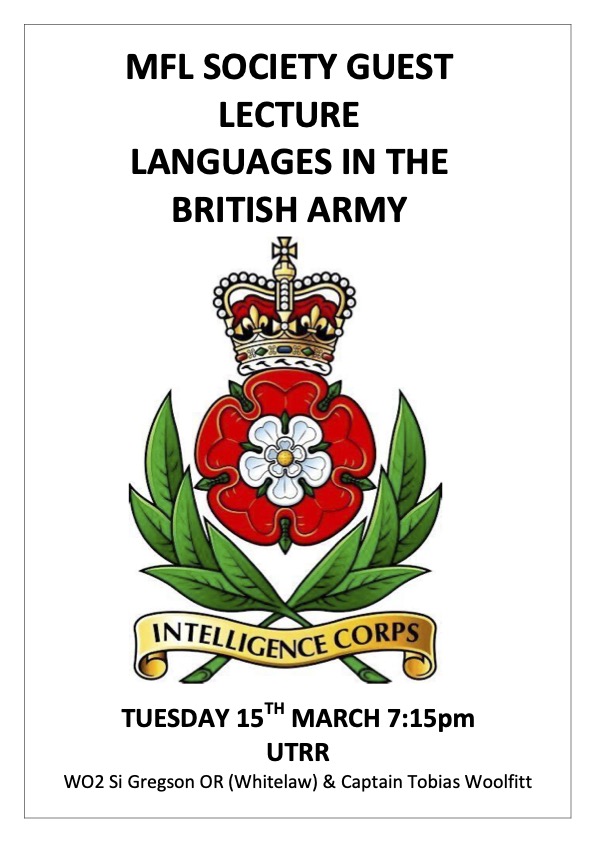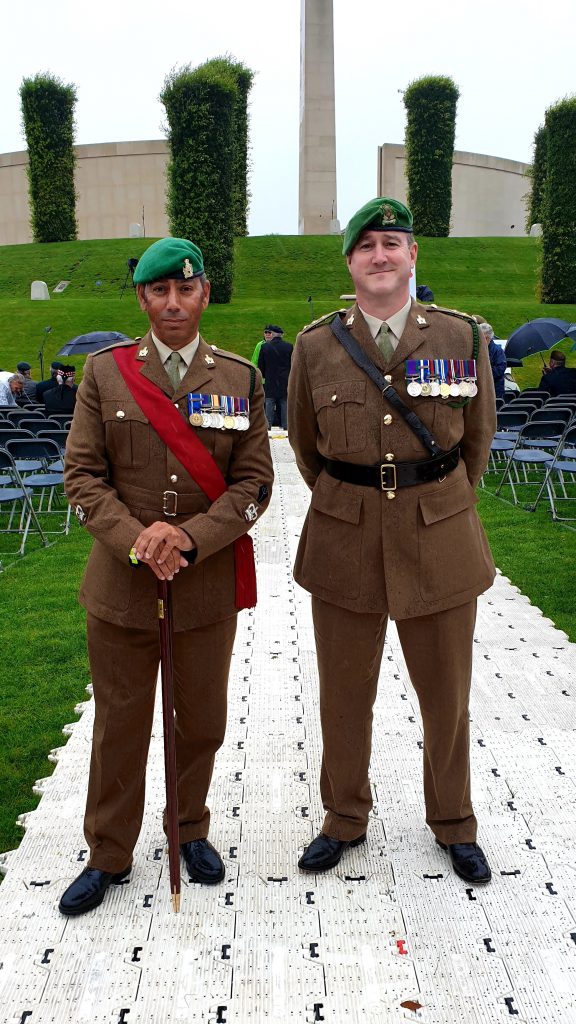
On the 15th March all Upper School linguists attended a talk given by Warrant Officer Si Gregson OR (Whitelaw) and Captain Tobias Woolfitt, two serving officers in the British Army Intelligence Corps. XX student Holly Goodier enthusiastically introduced the two speakers and Si started speaking about his career and background. He started by asking around the room who studied a modern foreign language. Of course, everyone in the room put their hand up. This is an MFL talk after all. He then asked what we all intended to do with this foreign language, to which there was a much less enthusiastic response. Of course, all being aged between 16-18, few students are sure of what they want to do post-school. There were a few people who volunteered their ideas: travel, working in a vineyard in France, joining the army, and living in Paris. Si agreed that these were all interesting plans and emphasised that they would be made easier and more enjoyable with the knowledge of another language. ‘Building a rapport’ was the idea he wanted to convey; through conversing with a stranger in simple everyday language, a sense of rapport is created. This emphasised the importance of communication, that is the single most important way of conveying your ideas and opinions to another person. This is increasingly difficult, however, when who are trying to negotiate with someone who speaks no English and you do not speak their language.

After Si, it was Captain Tobias Woolfitt. ‘Woolfi’ as he was known to his friends, spoke about how learning a language could open one’s eyes to a totally different world. After explaining the plethora of languages available to officers in the Intelligence Corps, he stated that he knew Russian fluently, and in doing so he could communicate with other Russian speakers in the room, building the aforementioned rapport necessary in breaking barriers between languages. As an interpreter, Captain Woolfitt claimed that one must understand another’s culture, in order to properly understand and communicate the language. He furthered this by stating that there are cultures within a culture, and that the audience’s language would differ from his own, supported by the fact that he wouldn’t know about the likes of Tik Tok or Instagram, whereas the audience knew everything worth knowing about them. This emphasised his point that there are many nuances to a culture, and should one want to fully get to grips with how another acts, they should educate themselves on their interests and behaviours.
The talk was enlightening and extremely interesting, and as someone who knows little of the use of foreign languages in the military, I was able to walk away from the talk feeling more knowledgeable and to understand the importance of language for communication in unique situations. Although it is unlikely that I will join the military, I was intrigued by the explanation of why languages are so important in every situation, and how essential it is to not give up a language as the advantages are endless, and one may never know when it may be indispensable.
